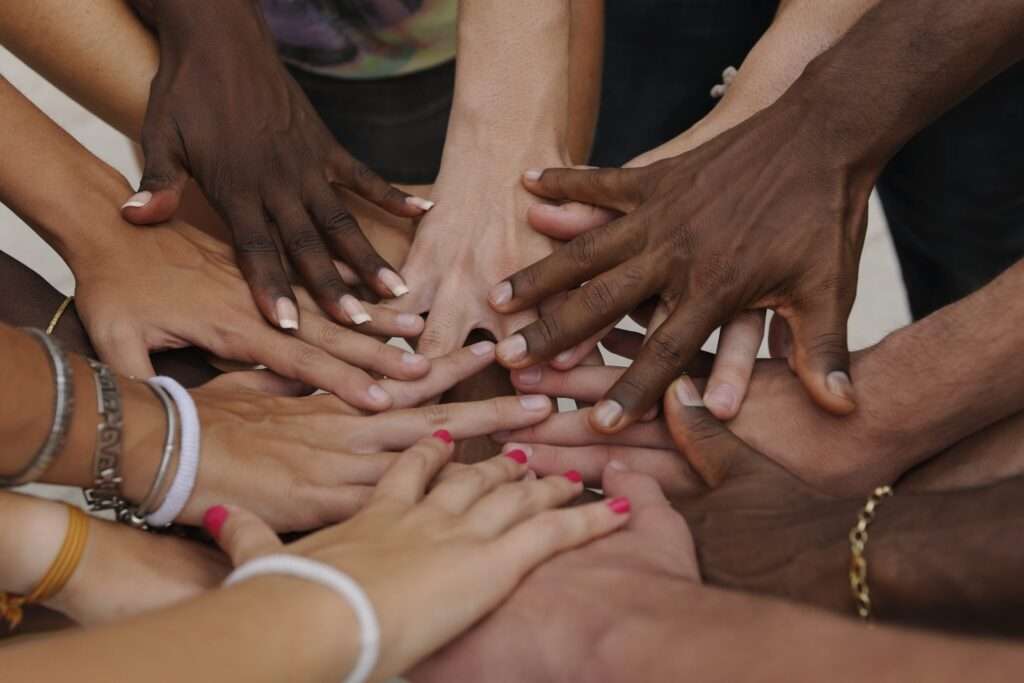Everyone does it, not just to others but we label ourselves. Give it some serious thought and ask yourself the questions below.
How do you label yourself, even if only in your head?
How does that label help you, or limit you?
How does it help or hurt those around you?
What Labels are Acceptable?
How do we educate a majority in a society without making the minority “less than”? Even in the words – majority and minority, we often create an even larger gulf between the two elevating one over the other.
We also have normal people and disabled people. In our societal attempts to meet essential needs such as accessibility, the universal sign for disabled was developed. Through incredibly hard legal work, we began to do better at integrating those with mobility challenges into the larger society. But the term disabled doesn’t feel good to many people.
Over the last decade or more, there has been a solid attempt to move towards differently-abled. And why not? Everyone is unique in their talents and their challenges. The term has the ability to highlight those who may need physical accommodations while acknowledging their unique gifts and contributions. However, in my research, I also found inclusive university programs are discouraging the use of handicapped, able-bodied, physically challenged, and differently-abled.
Adding to the challenge of an inclusive label, disabled or differently-abled really isn’t a good fit for people with Autism and neurotypical challenges.
Perhaps we could use typical and atypical. Not very warm from my perspective, but then my perspective doesn’t really count. What counts is: How do those that need to use the label feel about it? Does the label lead to positive advances during its reign of use?
How Labeling Can Be Useful
Unfortunately, labeling humans is always limiting. Still classifications are needed to:
- Drive research
- Distribute funds and resources
- Signal neighbors, teachers, and law enforcement that help and consideration outside of the norm is needed
Labels are PERSONAL – Labels are DEFINING
Why are labels big on my mind right now? In our political climate and drive towards racial justice, how could we not be aware of the potential of labels to uplift, demean, unite, or divide. I have friends that want to be called Black. I have friends that want to called African American. Some enjoy people of color and still others Bipoc. I have friends that are offended when they are referred to as White because for the majority to be clearly labeled and called out is so rare. I have friends that want to be referred to as she, he, it or they. As a young woman, I took a clear stand for the term Ms. while other friends wanted Mrs. (something I never understood.)
It’s right that we have opinions and strong feelings about labels. It is also important to realize opinions and feelings are diverse, even among the same people group struggling for a label that unifies.
Why Labels Matter for Future Life Now
As an additional motivation, we, at Future Life Now, are putting together an online summit to serve the needs of parents and children, where the child has additional health needs due to genetics or because of some accident at birth or beyond. Often these are needs that will span the lifetime of the child.
You have likely heard the term Special Needs Children. It has become controversial over the last decade. Yet it remains the most inclusive term that we are aware of. And perhaps, most importantly, it is widely used and accepted in research, and easily recognizable by a large portion of the population. Special children has been another suggestion in the past few years which has also received a mixed reception.
When selecting a name for the summit or any program, it must jump out at the intended audience that this is for them. It can’t be too cleverly hidden. In a matter of a few seconds the headline needs to say, this is my situation, these are my people, this is for me.
Still, as we were creating this summit and hearing the level of distress for some around the terms Special Needs Children or Children with Special Needs, we tried to be a bit creative. We kept the well-accepted phase special needs but framed it around the family unit and not just the child. The entire family needs special resources to navigate the complexity of learning, health, and mobility.
What is the name of this upcoming summit? Turning Challenges into Possibilities for the Special Needs Family. The dates will be November 5-10. It isn’t open for registration yet, but our entire team is now working to bring these resources to the people who are searching for them. We hope this speaks to you in the way our label intended – to classify and explain without offending.
By the way, what are your answers to our opening questions? Do you label yourself? Spend some time thinking about how the labels you give yourself can be shaping your experiences.
